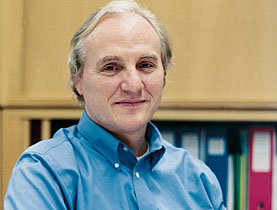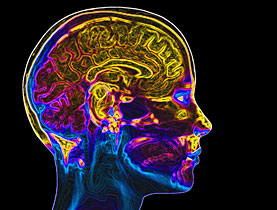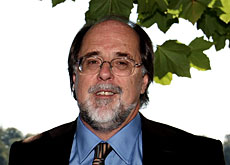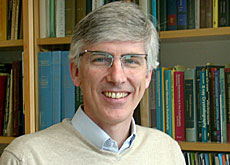Finding the balance between greed and altruism

People have the capacity to be as motivated by altruism as greed, economist Ernst Fehr, this year's winner of the prestigious Marcel Benoist prize, tells swissinfo.
The Zurich University economist scooped the Swiss equivalent of the Nobel prize for his work that overturned the established principle that self-interest is the primary driver of human nature. He receives the award on Thursday.
Fehr blames the slack regulatory framework rather than selfish individuals for causing the financial crisis and believes even greed can be turned to good causes.
swissinfo: You believe that altruism plays as important a role in society as greed?
Ernst Fehr: Economists assumed for 100 years that everybody was exclusively selfish. We just did not have the scientific basis for finding out what the other motives are. We now have the scientific tools to show us how selfish and altruistic people are.
Self-interest is a component in most people’s motivational repertoire. But the fact that people also have other motives, such as altruism, is important for the functioning of the economic and social world.
swissinfo: How can you prove this?
E.F.: In the real world we can always argue that people only comply with the rules because, otherwise, the police or judges will punish them.
In the laboratory, we can set up exchange situations where one person delivers according to the social contract and the other party can defect without fear of punishment. The only reason the second party does not defect in such a situation is some form of non-self-interested behaviour.
swissinfo: Was the financial crisis caused by greed?
E.F.: Greed has not increased over the last 25 years, but we had the wrong infrastructure in place. Infrastructure, in the form of regulation and the ideology of self-regulated markets, was the wrong approach.
Markets never work on their own; they require law enforcement and impartial judges in order to function. With the right regulations, these events could have been avoided, even with greedy people.
swissinfo: How do you regulate greedy behaviour?
E.F.: Self-interest is part of human nature and we cannot change that. But the nice thing about greedy people is that their behaviour is easy to predict, and you can change that with the right incentives.
If you grant rich people tax concessions for donating money to good causes then they will do so, not because they are altruistic but because they are selfish. You cannot change a greedy person into an altruistic one, but with the right incentives you can channel greed into socially useful purposes.
An example of setting wrong incentives is the bonuses of investment bankers. Investment bankers were paid bonuses based on their short-term success as opposed to their long-term contribution to the company.
swissinfo: So, it is a case of finding the right balance between self-interest and altruism?
E.F.: Even altruism can be bad. Altruism that targets small groups of insiders is often combined with hostility to outsiders. White supremacists can display altruism towards their own race while being extremely hostile to blacks.
It may be true that self-interest on average does harm while altruism does good, but these two motives are not per se bad or good.
My role is not to preach altruism but to understand it. I want to build institutions that take the mix of motives into account and transform them into socially optimal behaviour.
swissinfo: Do you have a message for society?
E.F.: A small number of idealistic people can make a big difference. You don’t need a large number of altruists to generate highly cooperative outcomes. You don’t have to start with a majority, but you can build a majority.
swissinfo-interview: Matthew Allen in Zurich
Professor Fehr’s laboratory experiments test how people react to given situations without fear of reprisals.
In one test, subject A is given SFr100 and invited to decide how to split the cash with subject B. The second subject can either accept the offer or refuse to take the cut, handing all the money back to subject A.
Common sense suggests that subject B should take the offer of even a single franc, but small offers are often rejected as an insult.
Experiments are often carried out using university students, but other groups such as dangerous criminals and autistic people are sometimes included.
Other tests involve giving subjects hormones before making decisions or even having certain brain centres temporarily switched off.
Austrian economist Professor Ernst Fehr is director of the Institute for Empirical research in Economics at Zurich University. He is also a member or fellow of various other academic institutions around the world.
His works cuts across the disciplines of economics, political science, sociology and neuroscience.
His specialist areas of research include the evolution of human cooperation and behavioural finance.
Among Fehr’s most prominent publications are his 2002 collaboration with Urs Fischbacker entitled: “Why social preferences matter – the impact of non-selfish motives on competition, cooperation and incentives”.

In compliance with the JTI standards
More: SWI swissinfo.ch certified by the Journalism Trust Initiative




You can find an overview of ongoing debates with our journalists here. Please join us!
If you want to start a conversation about a topic raised in this article or want to report factual errors, email us at english@swissinfo.ch.